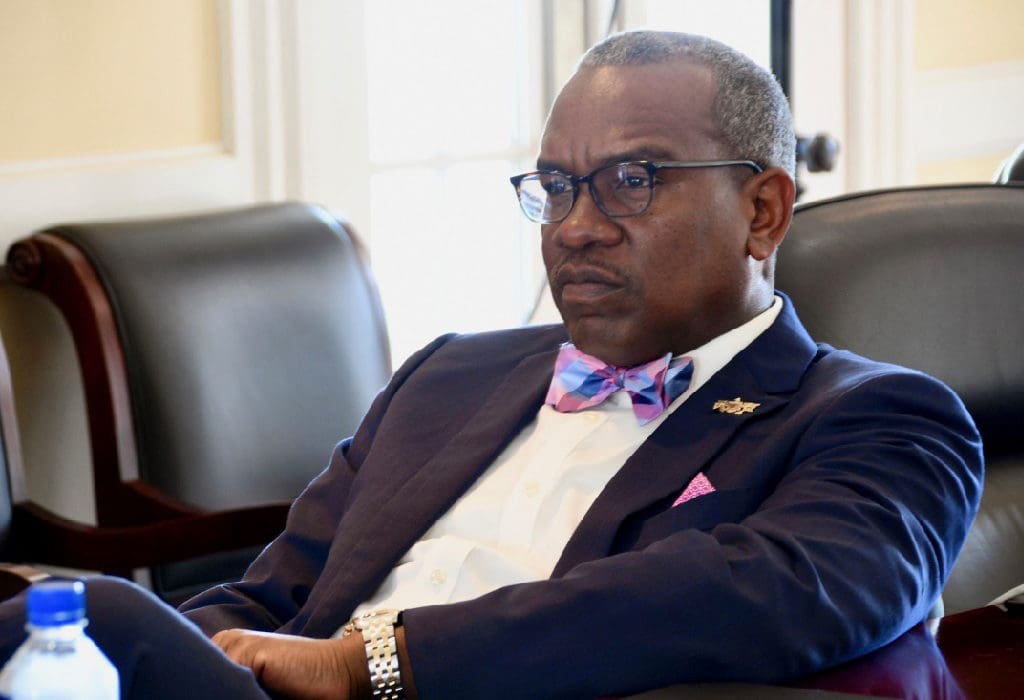In an article reported by the VI Consortium over the weekend on March 23rd, 2025. Governor Albert Bryan Jr. used the 2025 Spring Revenue Estimating Conference as a platform to propose key policy shifts aimed at securing the U.S. Virgin Islands’ economic stability amid shifting consumer trends and persistent structural costs.
Speaking candidly before attendees on Friday, Governor Bryan stressed the need for a new approach to how the government analyzes and manages its revenue and expenditure. He reiterated that while revenue projections appear steady, the real concern lies in rising costs. “I don’t expect that we’re going to have a problem with revenue for the next 10 to 15 years. The problem will be expenses,” the governor said in his opening remarks.
Among his most pointed proposals was a call to increase the Airbnb tax to 20 percent. Governor Bryan framed the issue as twofold: shifting short-term visitors back into traditional hotels to support the hospitality industry, and addressing a growing housing crisis for local residents. If “we move the Airbnb tax to like 20 percent, it does two things: it encourages more people to go into hotels,” he said, adding that the infrastructure for hotels is already in place and in need of greater occupancy.
Governor Bryan suggested that the growing number of Airbnb units—many of which were once long-term rentals—has contributed to the current housing shortage. By discouraging property owners from listing their units as short-term rentals, the higher tax could help shift more properties back into the long-term rental market, making them accessible to teachers, nurses, and other working residents.
“Right now in St. Thomas, St. Croix and St. John, rent is astronomical,” Governor Bryan said, blaming part of the issue on the proliferation of Airbnb properties. “We have 4,000 Airbnb rooms. We need to decrease that number so our teachers, our nurses, our working people, have some place to stay.”
He differentiated between Airbnb listings and villas, saying the latter cater to a different clientele and shouldn’t be subject to the same increased rate. “We having people coming in for a room for $150 a night, when we could be getting $300 a night and 12 and a half hotel room percentage tax on that, and we displacing our local people,” he said, referring ostensibly to the impact of the hospitality industry as the Airbnb market expands.
Governor Bryan also proposed a 25 percent tax on other shared economy services, aiming to realign the territory’s housing availability and tax revenue with long-term goals.
In addition to short-term rentals, Governor Bryan took aim at online shopping trends, which he says are undercutting local retail. “Retail trade is dying in our territory,” he warned, as he called for implementation of an internet sales tax. He noted that the shift toward e-commerce has meant fewer gross receipt tax revenues from local businesses.
“We need to consider an internet sales tax, because we no longer get the benefit of all the purchases,” said the governor. He challenged attendees to examine how many items they carried that were actually purchased locally. He emphasized that the issue is not pricing alone, but consumer preferences for variety and convenience.
“That’s not going away. It’s going to get worse,” he said, referencing advancements in shipping and logistics. “Our retail base is in serious jeopardy.”
The governor pointed to a broader strategy to stabilize the economy: reviving the refinery on St. Croix, advancing development of a free trade zone, promoting low-cost industrial energy, and potentially easing border restrictions between the U.S. and British Virgin Islands.
Governor Bryan also took the opportunity to call for what he referred to as an “expenses conference.” While revenue forecasting is important, he emphasized that the government needs a realistic understanding of its spending obligations.

